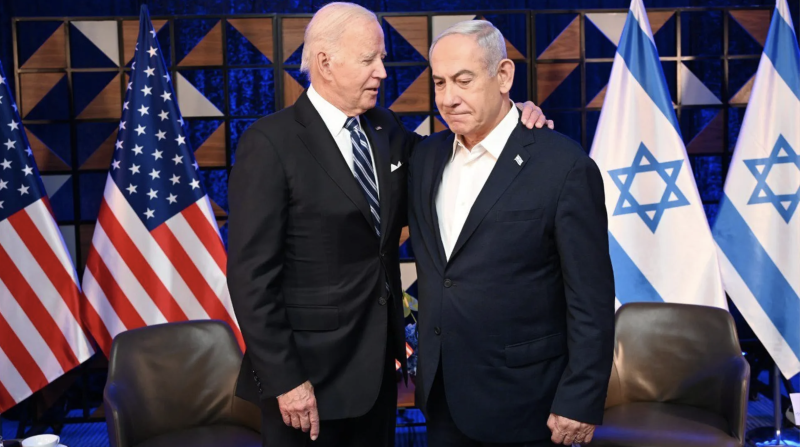
American President Joe Biden has publicly professed that he will withhold weapons supplies to Israel if it proceeds with plans for an invasion of the Southern Gaza city of Rafah. The public warning is the first time that Biden has sought to leverage the US’s role in supplying the Israeli military to influence the offensive.
"I made it clear that if they go into Rafah ... I’m not supplying the weapons," said Biden, in an interview to CNN on May 8. Biden also acknowledged that American supplied weapons were used to kill civilians in Israel’s offensive in Gaza. “Civilians have been killed in Gaza as a consequence of those bombs and other ways in which they [Israel] go after population centers,” the President added.
The President’s comments follow the voicing of American concerns over a possible invasion of Rafah, which the administration believes could result in a humanitarian catastrophe.
Republicans were quick to criticize Biden, with House Speaker Mike Johnson and Senate Republican leader Mitch McConnell writing a letter to the President, claiming that “Israel faces an existential and multi-front threat … and daylight between the United States and Israel at this dangerous time risks emboldening Israel’s enemies and undermining the trust that other allies and partners have in the United States.” In a post on X, Republican Senator Mitt Romney claimed that “Biden’s dithering on Israel weapons is bad policy and a terrible message to Israel, our allies and the world.”
Over a million refugees from all over Gaza are sheltering in Rafah as refugees. Negotiations and talks for a ceasefire agreement between Israeli leaders and Hamas are ongoing in Cairo. The Israeli bombing blitz in Gaza has thus far killed nearly 35,000 civilians, most of them women and children.
Israel has also initiated a limited campaign of aerial strikes in southern Gaza after it captured the Gazan side of the Rafah crossing with Egypt on May 7.
Biden first warned Netanyahu against launching an invasion of Rafah during a phone call in April. Netanyahu’s political survival however, depends on appeasing his far-right coalition partners, who have threatened to unseat his government if he calls off the offensive or makes too many concessions in the ceasefire talks.
Netanyahu is particularly dependent on two far-right hardliners from the nationalist religious bloc in his cabinet, Finance Minister Bezalel Smotrich and Security Minister Itamar Ben-Gvir, for his political survival.
Both Ben-Gvir and Smotrich have threatened to leave and consequently collapse Netanyahu’s government if Israel agrees to a ceasefire, and remain insistent that a Rafah operation is necessary to defeat Hamas.
Ceasefire talks in Cairo
Ceasefire talks have been taking place in Cairo, with mixed signals of intent from both Israel and Hamas.
On May 6, Israel claimed that the ceasefire proposal that Hamas agreed to did not go far enough, with Hamas claiming that Israel was not serious about a ceasefire agreement, and that the Netanyahu government intended to use the negotiations in Cairo as a cover for their invasion of Rafah.
Palestinians sheltering in Rafah continue to battle acute shortages of food, water and medicine. Israel claimed that it had opened the Kerem Shalom crossing to let aid enter southern Gaza, but the UN said that no humanitarian aid had yet entered, with aid worders having fled after the Israeli military’s offensive began.
The UN claims that a “full-blown famine” is underway in Gaza.
